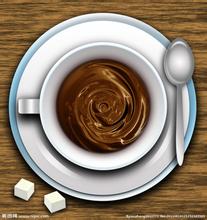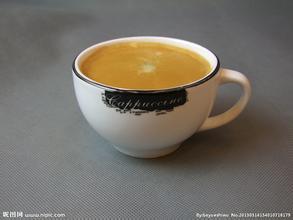Introduction to the characteristics of Indonesian civet coffee flavor and taste manor area
Eighty-five percent of Kopi Luwak on the market is fake, and many coffee companies label regular coffee as "cat shit" to bid up prices. Even if it comes from real cat shit, it is basically the product of industrial production. It is almost impossible for coconut cats to be omnivores. In addition to eating seeds for a living, they also eat insects and snakes, birds, amphibians and reptiles. Therefore, the feces discharged by real wild coconut cats will be mixed with all kinds of substances. Local farmers in Indonesia catch coconut cats to raise them and feed coffee beans to make them. But there is a difference between artisanal and natural, after all, Tim Carman, a food columnist for the Washington Post, commented on Kopi Luwak sold in the United States and concluded, "it tastes like Folger coffee." It's like rotten, lifeless taste. It's like petrified dinosaur shit in bath water. I can't finish it Kopi Luwak, Kopi (Indonesian, coffee), Luwak refers to an arboreal wild animal commonly known as "civet" in Indonesia, after processing and roasting, Kopi Luwak has become a luxury coffee drink and spread to luxury kingdoms around the world. Local coffee farmers, in pursuit of high profits, bring wild civets home to raise them so that they can produce more Kopi Luwak. However, the Kopi Luwak produced by breeding civets will be much worse in color and taste. Even so, the output of this kind of coffee is still very rare, and not all coffee lovers can afford it. M.P. Mountanos, which first introduced Kopi Luwak coffee to the United States, pointed out that when I first heard this kind of internal fermented coffee, I thought it was an industry joke, but I didn't take it seriously. later, I saw a special report on Kopi Luwak in National Geographic magazine and became interested in her. It took seven years to find a stable source of supply and began to introduce a small amount into the United States. What's the flavor of this coffee? Generally speaking, Indonesian coffee has the taste of earth and traditional Chinese medicine, and its consistency is among the highest in all continents, but the taste and consistency of Kopi Luwak are stronger, and its consistency is almost close to that of syrup. The special flavor of coffee beans usually goes through the process of fermentation through the shell. Coffee beans in the civets' intestines, special bacteria provide a unique fermentation environment, the flavor becomes unique, particularly thick and mellow. The coffee beans fermented by civets' intestines and stomach are very thick and mellow. in the international market, Luwak coffee has always been a veritable luxury, and one of the main reasons is that it is not made by people but by wild animals. Traditionally, the coffee fruit is washed or sun-treated, removing the skin, pulp and sheep skin, and finally taking out the coffee beans, but Luwak coffee is made by natural fermentation in wild animals. What's more, these wild animals are found only on small islands like Indonesia, and their time and place are mysterious, and their number is decreasing day by day. Although Indonesia has claimed that the number of "civets" has rebounded steadily through protection and artificial feeding, the temptation of human taste buds, which depends on its digestive system, cannot be compared with the products of the industrial era.

Important Notice :
前街咖啡 FrontStreet Coffee has moved to new addredd:
FrontStreet Coffee Address: 315,Donghua East Road,GuangZhou
Tel:020 38364473
- Prev

Strong aroma of Tanzanian coffee flavor taste introduction of boutique coffee in manor producing area
The topography of Tanzania is high in the northwest and low in the southeast, showing a ladder shape. The eastern coast is a lowland, the western inland plateau accounts for more than half of the total inland area, and the East African Rift Valley runs from east to west from Lake Malawi to the north and south. The Kibo peak of Mount Kilimanjaro in the northeast is 5895 meters above sea level. It is the highest peak in Africa. The eastern coastal areas of Tanzania and part of the inland lowlands have a savanna climate.
- Next

An introduction to the characteristics of Peruvian organic coffee with elegant and mild sour taste
Peruvian coffee is grown in a planned way, which has greatly increased coffee production. Its rich acidity and mellow smoothness are its most prominent features. Peruvian coffee has a soft sour taste, medium texture, good taste and aroma, and is an indispensable ingredient in the production of comprehensive coffee. Peruvian coffee of outstanding quality, with strong aroma, smooth, layered and rich sweet taste.
Related
- Detailed explanation of Jadeite planting Land in Panamanian Jadeite Manor introduction to the grading system of Jadeite competitive bidding, Red bid, Green bid and Rose Summer
- Story of Coffee planting in Brenka region of Costa Rica Stonehenge Manor anaerobic heavy honey treatment of flavor mouth
- What's on the barrel of Blue Mountain Coffee beans?
- Can American coffee also pull flowers? How to use hot American style to pull out a good-looking pattern?
- Can you make a cold extract with coffee beans? What is the right proportion for cold-extracted coffee formula?
- Indonesian PWN Gold Mandrine Coffee Origin Features Flavor How to Chong? Mandolin coffee is American.
- A brief introduction to the flavor characteristics of Brazilian yellow bourbon coffee beans
- What is the effect of different water quality on the flavor of cold-extracted coffee? What kind of water is best for brewing coffee?
- Why do you think of Rose Summer whenever you mention Panamanian coffee?
- Introduction to the characteristics of authentic blue mountain coffee bean producing areas? What is the CIB Coffee Authority in Jamaica?

